Top Cooking Activities to Boost Gross Motor Skills in Toddlers and Preschoolers
Incorporating simple cooking-related chores into your child’s routine can have a profound impact on their gross motor skills, coordination, and overall development.
PARENTING
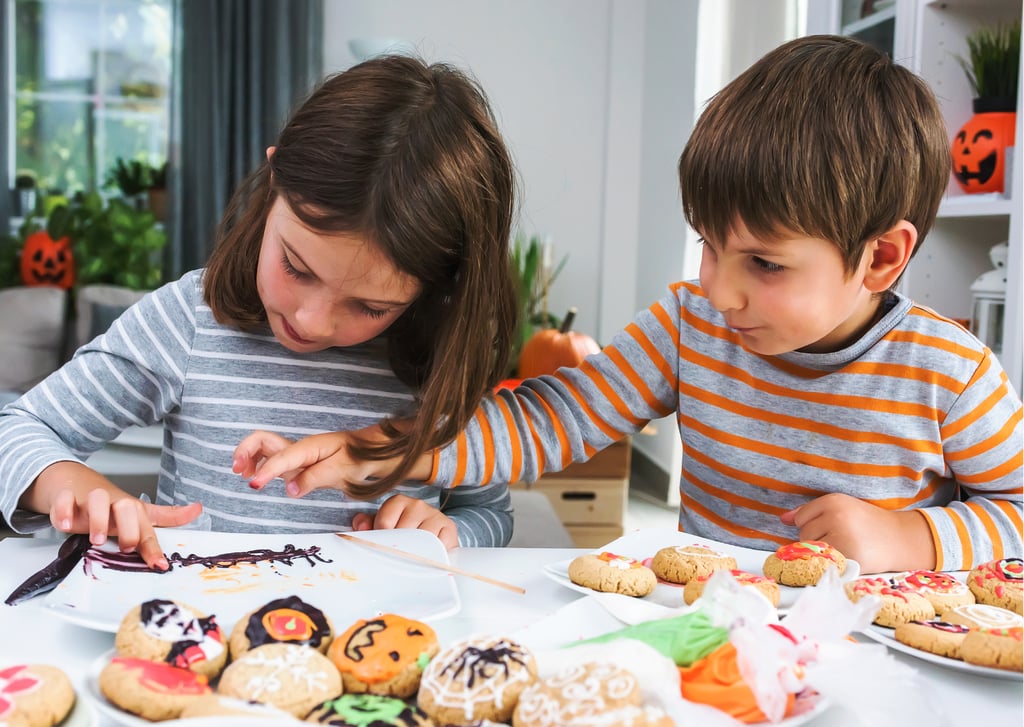

Parents are always on the lookout for activities that can support our children’s development while also keeping them engaged and entertained. One often overlooked yet incredibly effective avenue is involving children in simple cooking-related chores. These activities not only introduce them to essential life skills but also significantly enhance their gross motor skills. Let's look into a few options that can immensely benefit both the parent and their children in the longer run. Get ready to read more which would be your first step towards responsible parenting!
What's the fuss all about Gross Motor Skills?
Research studies have shown that activities that engage the large muscle groups can enhance a child's motor skills, coordination, and physical fitness, leading to better overall development. The simplest and the easiest is house hold especially the ones done in kitchen. Imagine the small tasks like peeling soaked almonds or boiled eggs, deshelling green peas or groundnut, measuring ingredients, poring stirring, mixing, crushing, kneading and the lot more involves our fingers and muscles.
Cooking-Related Chores to Enhance Gross Motor Skills
1. Stirring and Mixing
Stirring and mixing require the use of the arms, shoulders, and core muscles, which helps strengthen these areas and improve coordination.
Child-Sized Utensils: Provide small, easy-to-handle mixing bowls and spoons.
Supervised Practice: Start with simple tasks like stirring pancake batter or mixing salad.
Encouragement: Praise their efforts to keep them motivated and engaged.
Every Saturday, the Monisha's family has a Rava-Dosa breakfast tradition. Five-year-old Navya loves helping her mom mix the batter with grated veggies and chopped onions. Over time, her stirring has become more coordinated, and she proudly shows off her rava-dosa batter-mixing skills to her grandparents during visits.
Cooking-Related Chores for Better Gross Motor Skills
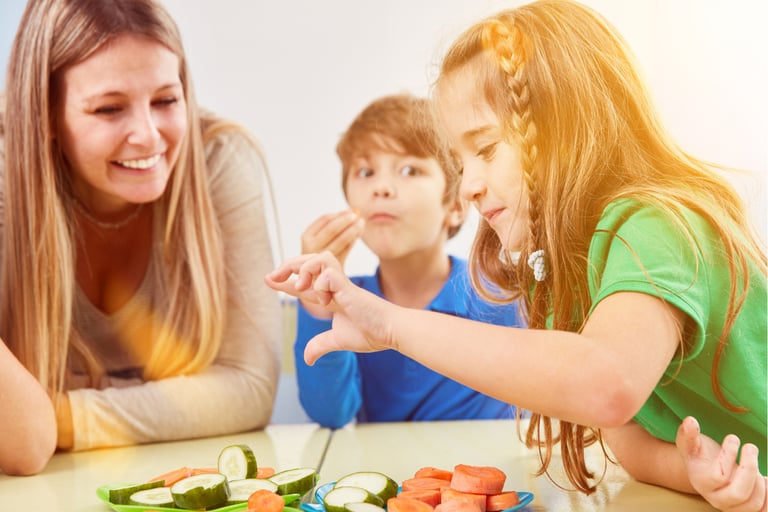

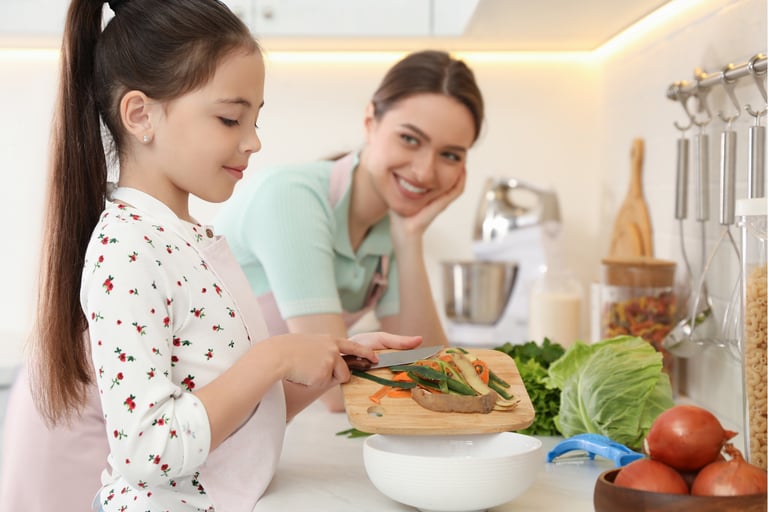

2. Pouring Ingredients
Can something as simple as pouring really make a difference in my child's development?
Yes! Pouring requires precision and control, which helps develop hand-eye coordination and strengthens the muscles involved in grip and stability.
Use measuring cups with clear markings to make it easier for your child to pour the correct amount.
Let them practice with different textures, such as pouring water, rice, or flour.
Initially guide their hands to help them understand the motion.
Three-year-old Jai loves pouring ingredients while baking cookies with his dad. Whether it’s flour or sugar, Jai’s focus and control have improved, making him more adept at handling different kitchen tasks.
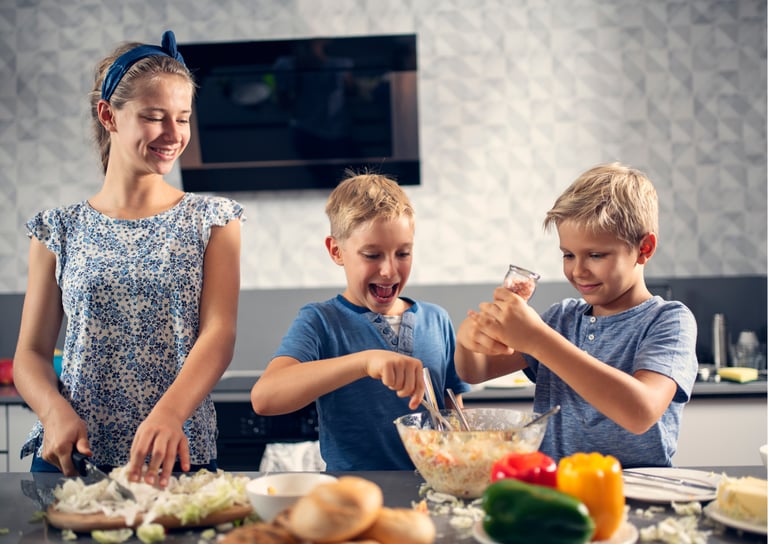

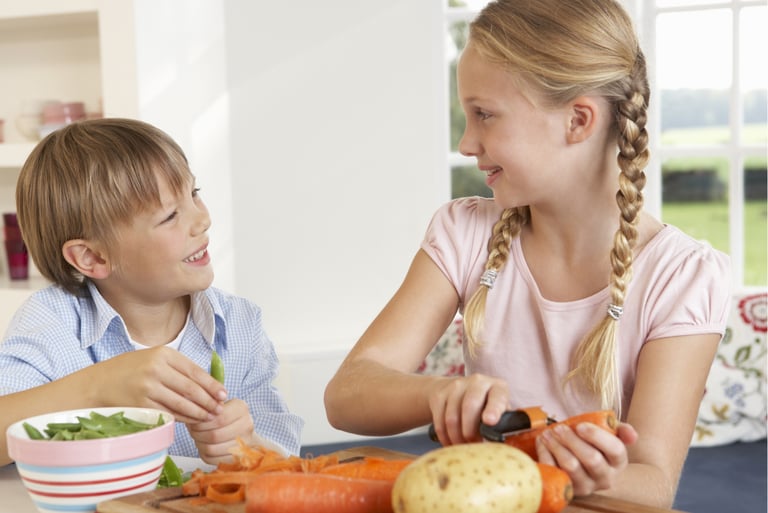

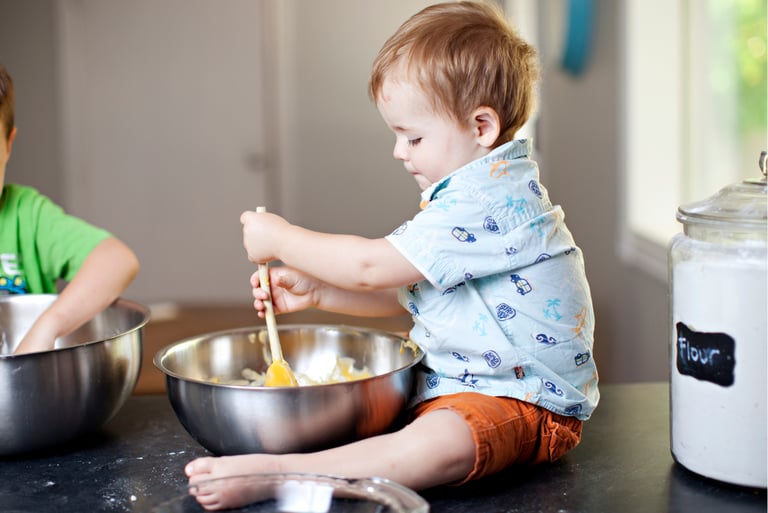

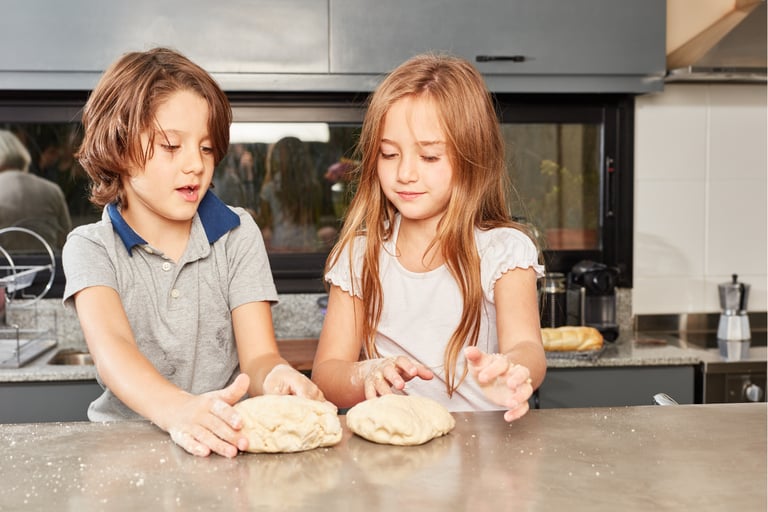

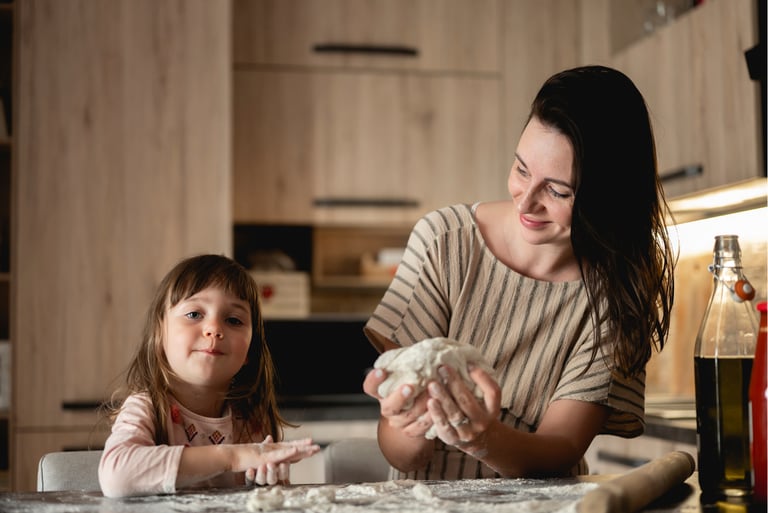

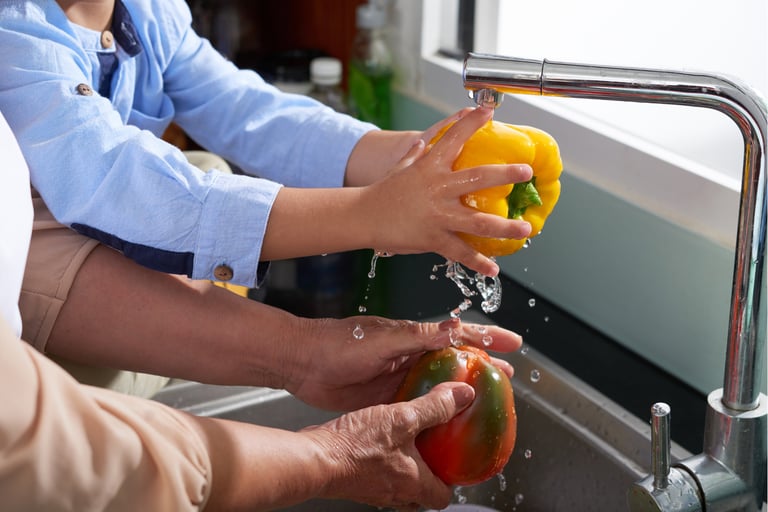

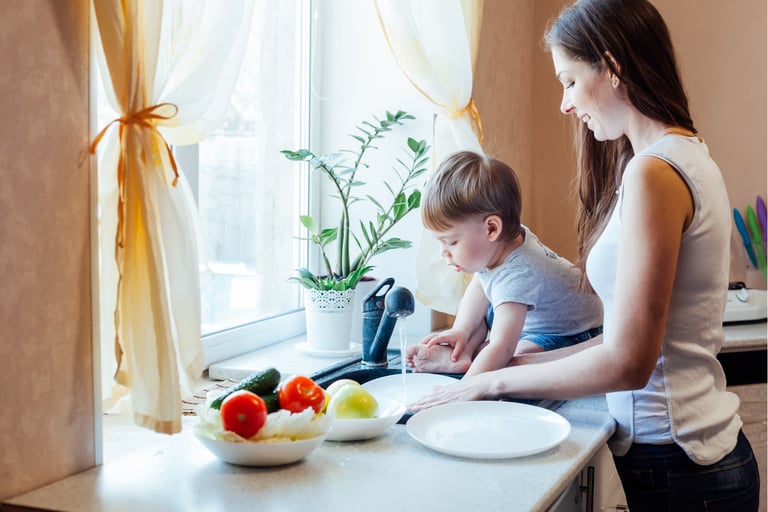

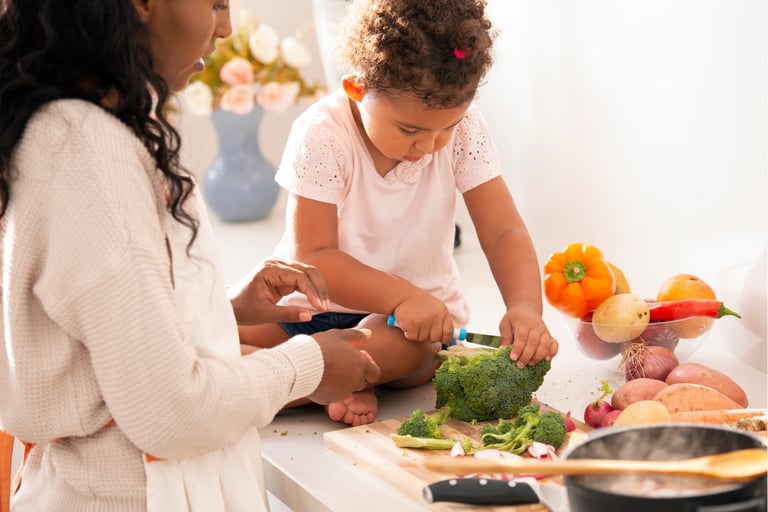

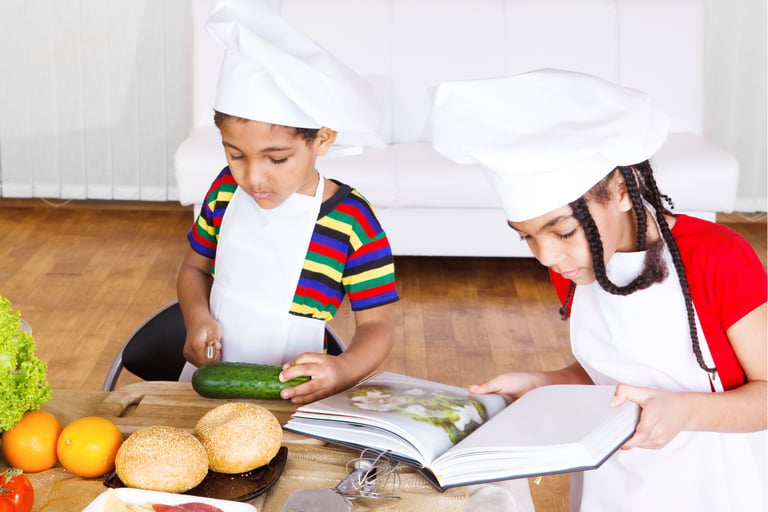

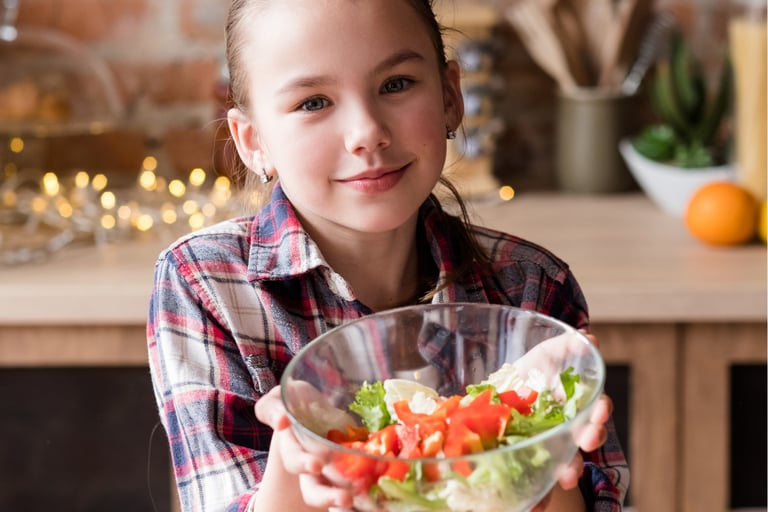

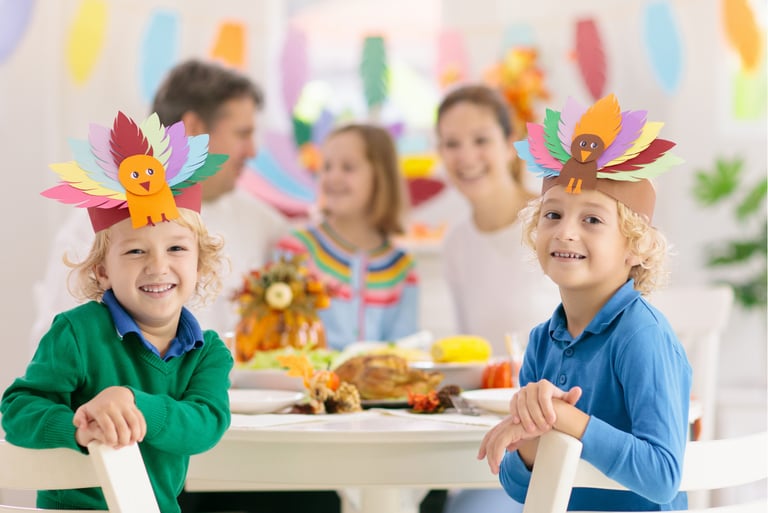



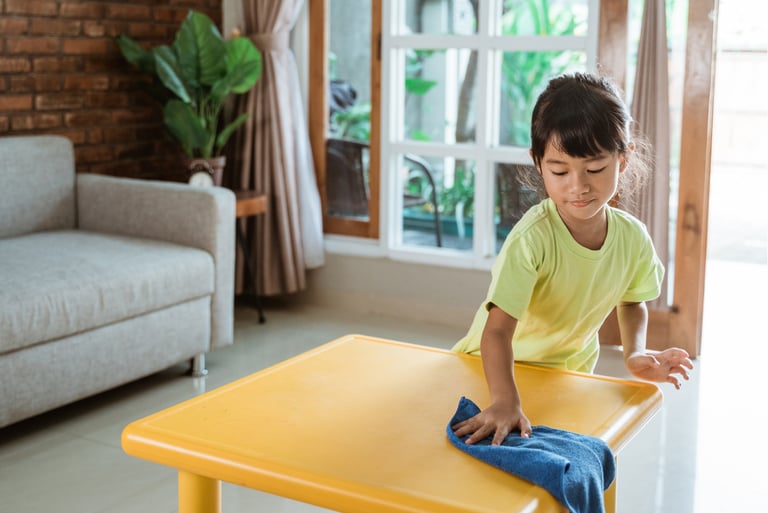

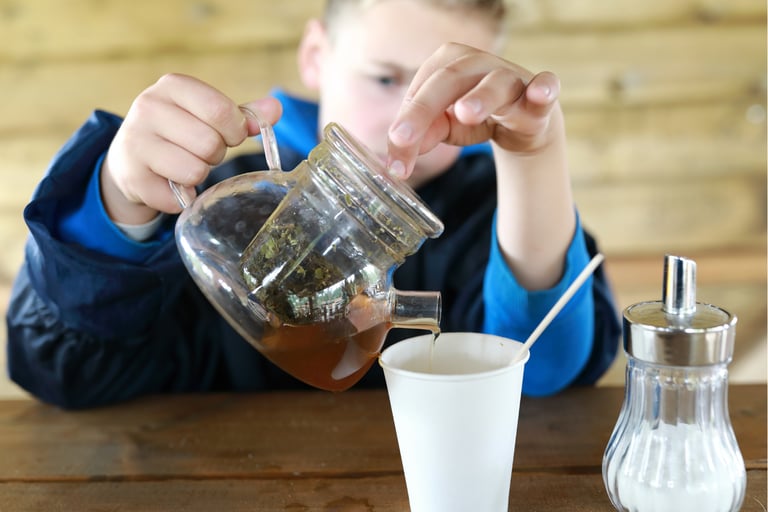

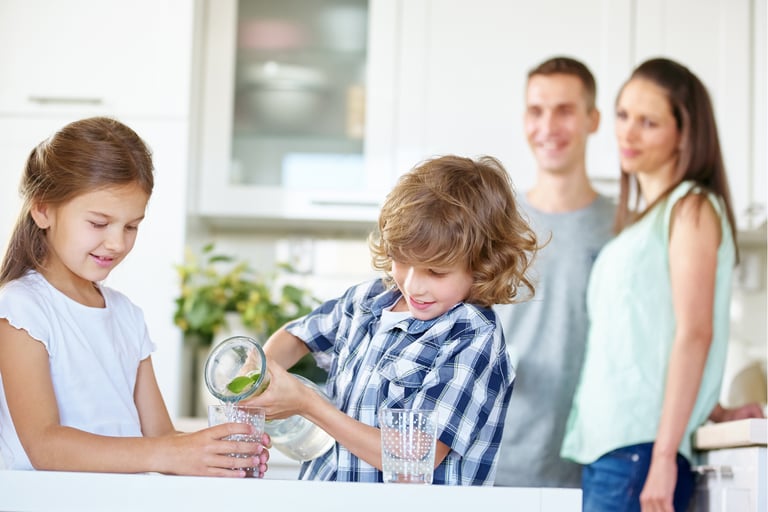

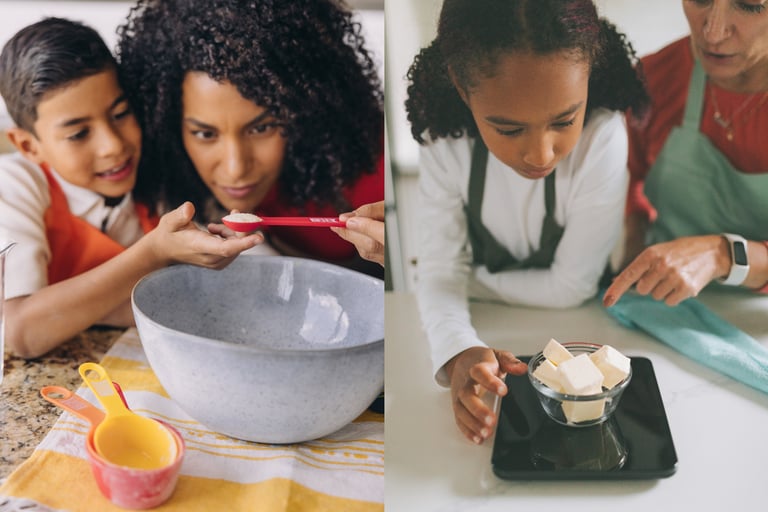

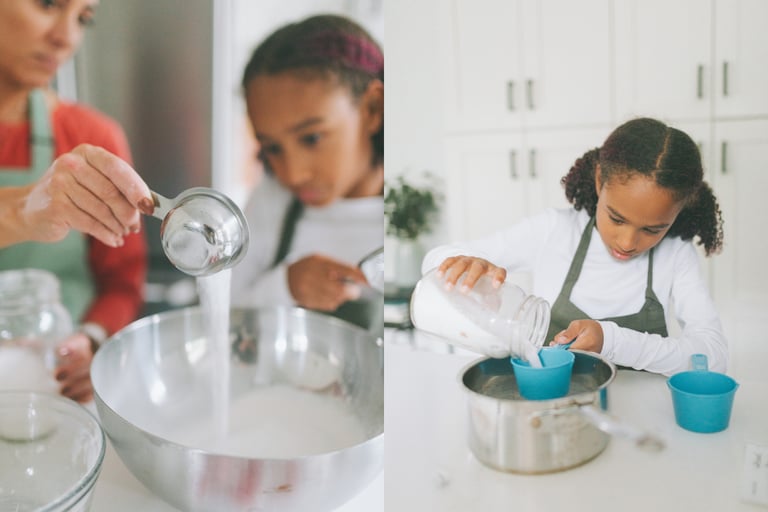

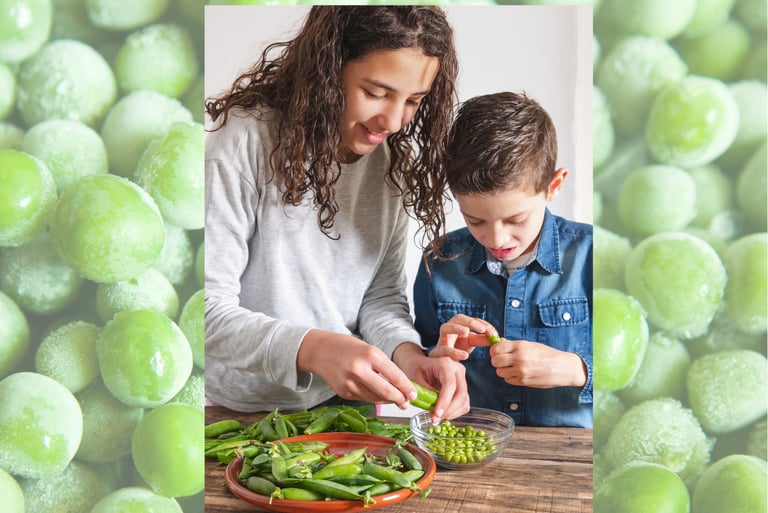

3. Kneading Dough
Kneading dough is a full-body activity that engages the arms, shoulders, and core, enhancing strength and endurance.
Start with soft dough that’s easy to manipulate.
Show your child how to push and fold the dough.
Include kneading as a regular part of your cooking routine.
Kneading dough involves repetitive movements that are excellent for muscle development and coordination (Fulkerson et al., 2011).
In the evenings, as part of the meal prep routine, six-year-old Mia helps her mom knead the dough for chapathi. This task has not only made her stronger but also more interested in cooking. Mia’s enthusiasm for making chapathi dough sometimes colour infused or shapes with lids or cookie cutters is fun and a true time saver now become a cherished family tradition too.
4. Washing Vegetables and Fruits
Washing vegetables and fruits involves reaching, scrubbing, and rinsing, which helps develop arm strength and coordination
Safe Tools: Provide child-friendly brushes and scrubbers.
Fun Process: Turn washing produce into a fun activity with bubbles and water play.
Positive Reinforcement: Encourage them and celebrate their help.
Four-year-old Sherin enjoys helping her parents wash vegetables for dinner. Her favorite part is scrubbing carrots and potatoes. This activity has improved her grip and coordination, making her more confident in her abilities.
5. Cutting Soft Foods with Supervision
Isn’t it dangerous to let young children handle knives?
With proper supervision and age-appropriate tools, cutting soft foods can be a safe and beneficial activity.
Safety Knives: Use child-safe knives designed to cut soft foods like bananas, strawberries, and boiled eggs.
Supervision: Always supervise and guide their hands as they learn.
Start Simple: Begin with easy-to-cut foods to build confidence.
Learning to cut food improves fine motor skills, hand-eye coordination, and concentration (Gabbard, 2012).
During snack time, seven-year-old Vinu helps his mom cut bananas for their fruit salad. Using a child-safe knife, Vinu has become proficient at cutting, enhancing his fine motor skills and boosting his confidence in the kitchen.
6. Arranging and Decorating
How does arranging and decorating food help with motor skills?
Arranging and decorating food require precision and creativity, engaging the fine motor skills and promoting hand-eye coordination.
Simple Tasks: Start with easy tasks like arranging fruit slices or decorating cupcakes.
Creative Freedom: Allow your child to express their creativity with different designs.
Positive Feedback: Praise their creativity and efforts.
Five-year-old Ayan loves decorating cupcakes with his mom. He carefully arranges sprinkles and icing, improving his hand-eye coordination and precision. Ayan’s creativity shines through his colorful cupcake designs, making baking a delightful and beneficial activity.
7. Measuring Ingredients
Can measuring ingredients really help with my child’s development?
Yes, measuring ingredients helps with math skills and requires coordination and precision
Measuring Tools: Use clear and easy-to-read measuring cups and spoons.
Guided Practice: Guide your child through the process, explaining each step.
Engagement: Involve them in measuring both dry and wet ingredients.
Measuring ingredients enhances cognitive skills, such as math and problem-solving, while also improving motor skills (Geist, 2010).
During their weekly baking sessions, seven-year-old Arjun helps his dad measure ingredients for their favorite chocolate chip cookies. Arjun’s understanding of measurements and his coordination have improved, making him an integral part of their baking team.
8. Setting the Table
Setting the table involves lifting, carrying, and placing items, which help develop arm strength and coordination.
Lightweight Items: Start with lightweight, unbreakable items for young children.
Routine: Make setting the table a regular part of your child’s responsibilities.
Encouragement: Praise their efforts and celebrate their contributions to family meals.
Every evening, eight-year-old Brinda helps set the table for dinner. She carefully places the plates, utensils, and glasses, improving her coordination and taking pride in her contribution to the family.
9. Cleaning Up
Can cleaning up really enhance my child’s physical development?
Yes, cleaning up involves various movements that engage large muscle groups, promoting physical activity and coordination.
Fun Cleanup: Turn cleanup into a fun game with music and rewards.
Simple Tasks: Assign age-appropriate tasks like wiping the table or sweeping crumbs.
Routine Building: Make cleaning up a consistent part of their routine.
After baking cookies, four-year-old Krish helps his mom clean the kitchen. He wipes the counter and sweeps the floor, turning cleanup into a fun activity. Krish’s coordination and muscle strength have improved, making him a helpful little helper.
10. Peeling and Shelling
Peeling and shelling foods require fine motor skills and coordination, helping to strengthen hand muscles and improve dexterity.
Soft Foods: Start with soft, easy-to-peel foods like bananas or boiled eggs.
Demonstration: Show your child how to peel and shell foods safely.
Encouragement: Praise their efforts and progress.
Engaging in tasks that require precision, like peeling and shelling, enhances fine motor skills and hand-eye coordination (Case-Smith, 2000).
During breakfast, six-year-old Drithi helps her dad peel boiled eggs. This simple task has improved her fine motor skills and given her a sense of accomplishment as she contributes to the meal preparation.
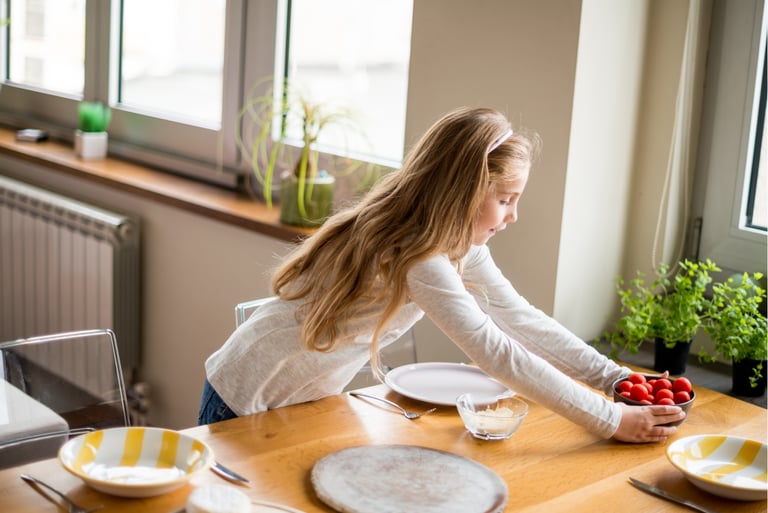

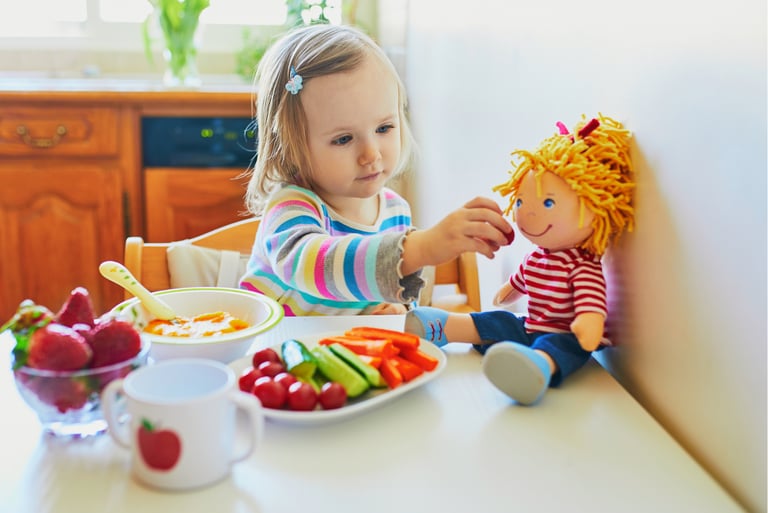

Incorporating simple cooking-related chores into your child’s routine can have a profound impact on their gross motor skills, coordination, and overall development. These activities are not only beneficial but also provide opportunities for quality bonding time, teaching responsibility, and fostering a love for cooking.
At Parentify, we are committed to providing parents with practical, scientifically backed advice to support their children’s growth and development. Explore our website for more resources and join our community to share your experiences and learn from other parents. Together, we can make parenting a rewarding and fulfilling journey.
